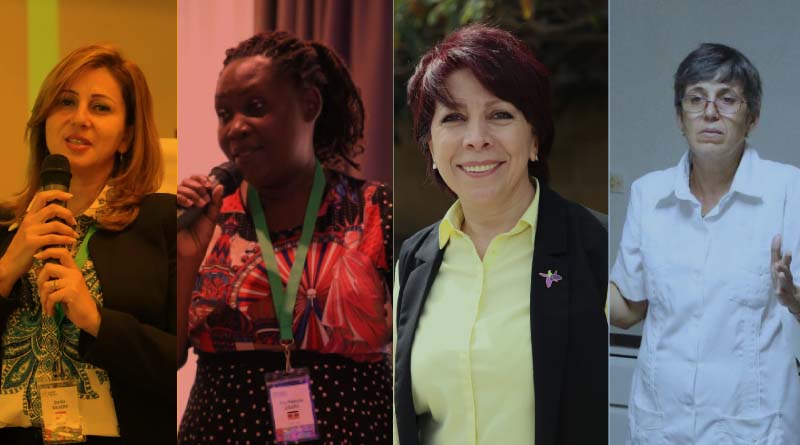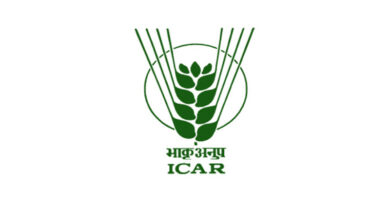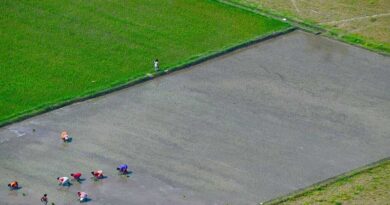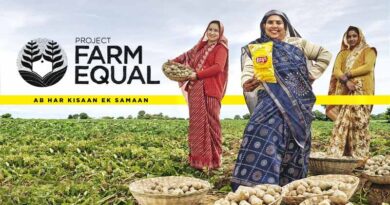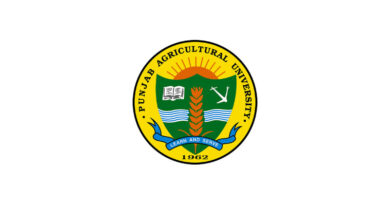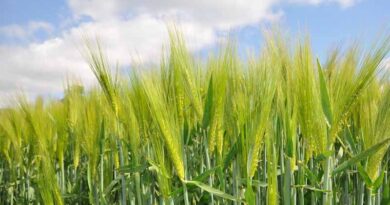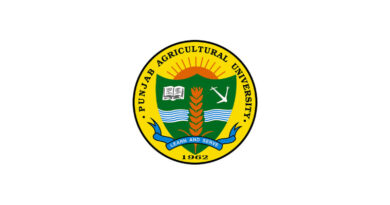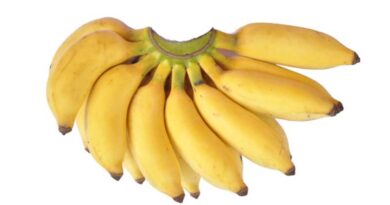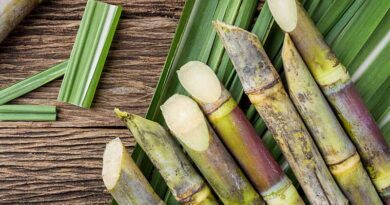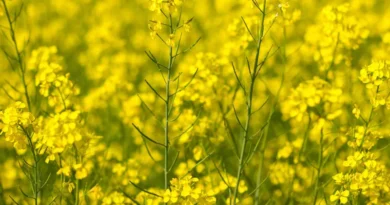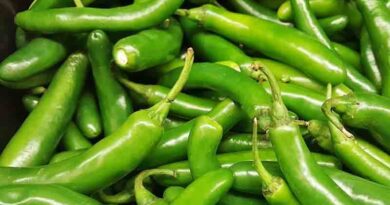Celebrating the BOLD Women Behind Crop Conservation
08 March 2024, Uganda: As the world celebrates International Women’s Day, we highlight the invaluable contributions of women in agriculture in general and agricultural research in particular. In fields, laboratories, and genebanks around the globe, women play a vital role in preserving crop diversity, and safeguarding food security for generations to come.
The importance of women in agriculture cannot be overstated. On average, women comprise over 40% of the agricultural labor force in developing countries, where they are responsible for up to 80% of food production. Yet, despite their vital role, women often face systemic barriers and unequal access to resources, education, and support services.
The need to address gender inequality in agriculture isn’t just a moral imperative; it’s an economic and environmental necessity. Studies have shown that closing the gender gap in agriculture could increase agricultural productivity, reduce hunger and poverty, and promote sustainable land management practices. Yet, progress remains painfully slow, with entrenched attitudes and biases holding women back from reaching their full potential.
In the face of these challenges, we salute here four extraordinary women who defy the odds, challenge the status quo, and embody the spirit of resilience and determination in agricultural research. These women, integral members of the BOLD project, are at the forefront of efforts to preserve crop diversity within National Genebanks.
Their stories, spanning continents and cultures, shed light on the transformative impact of female leadership in the conservation of crop diversity. From Uganda to Cuba, from Azerbaijan to Lebanon, these women are driving positive change and inspiring others to do the same.
Lianne Fernández Granda – A Driving Force in Cuban Agricultural Science
As the head of the Department of Plant Genetic Resources and Seeds at the Central Genebank of Cuba (INIFAT), Lianne Fernández Granda plays a crucial role in the nation’s efforts toward sustainable agricultural development and food security. Her dedication to preserving the diversity of crops, especially in the aftermath of climatic disasters, and her efforts to uphold traditional and cultural knowledge through culinary and biodiversity fairs, spotlight a crucial intersection of science, agriculture, and heritage.
The Central Genebank of Cuba, under Fernández’s guidance, is a critical repository for over 4,000 plant varieties. This collection not only represents the rich diversity of Cuba’s agricultural heritage but also serves as a resource for developing resilient and adaptable crops for the future. By safeguarding such a range of agricultural biodiversity, the genebank is an invaluable asset in addressing the challenges of climate change and to ensure the continuity of traditional farming practices.
Drawn to agriculture through her passion for nature and plants, Dr. Fernández highlights the importance of integrating traditional farming knowledge with modern scientific research to bolster Cuba’s food security. She draws inspiration from iconic women in science like Marie Curie, as well as Cuban luminaries such as Dr. Concepción Campa (1951-) and Eng. Laura Muñoz (1933-2016), who have broken barriers and paved the way for future generations. She acknowledges the supportive environment for women in Cuba, which, coupled with her family’s support, has been instrumental in her achievements.
“I suppose like for many women in science, Marie Curie is a role model for me. She faced so many challenges, especially at a time when women were not considered capable of being scientists. She certainly proved them wrong! Here in Cuba, my role models are two outstanding women scientists: Dr. Campa, who headed the development of the Cuban vaccine against bacterial meningitis and is a model of wisdom, humility and sweetness, and Eng. Muñoz, who devoted her whole life to plant breeding at INIFAT.”
Leading a dynamic team, Dr. Fernández is committed to fostering the next generation of agricultural scientists. She finds great satisfaction in seeing the practical applications of INIFAT’s research come to life in Cuban fields, where they directly benefit farming communities and enhance food security.
Dr. Fernández offers valuable advice to women aspiring to careers in science: the importance of relentless study, teamwork, and language skills to foster broader communication and collaboration within the global scientific community.
Sevinj Mammadova – Pioneering Plant Preservation in Azerbaijan’s National Genebank
Dr. Sevinj Mammadova is the head of the Germplasm Laboratory at the Azerbaijan National Genebank, where she oversees a critical repository that plays a crucial role in the conservation of agricultural diversity in the country. The genebank holds an extensive collection, safeguarding many important varieties of cereals, grain legumes, fruits, vegetables, melons, fodder plants, medicinal plants, and their wild relatives.
Dr. Mammadova’s journey into science seems to have been almost predestined, influenced by her parents’ remarkable scientific achievements in the Middle East and Transcaucasia. With her mother the first woman in the region to earn a doctoral degree in invertebrate zoology and her father a Doctor of Science in microbiology and veterinary science, Dr. Mammadova was inspired from her earliest days to forge her own path in plant science.
The Azerbaijan National Genebank was established in 2003 under the guidance of the Genetic Resources Institute (GRI). Its collection grew from 246 accessions in 2005 to nearly 10,000 by the end of 2022, underlining the genebank’s comprehensive commitment to biodiversity preservation despite significant funding constraints.
A notable aspect of Dr. Mammadova’s career is her advocacy for women in science, especially in leadership roles within genebanks. Drawing from her vast experience visiting genebanks across the globe, she highlights the essential yet often under-recognized role of women in this field. Dr. Mammadova believes that women’s unique perspectives can bring clarity and detail-oriented solutions to complex problems in science and beyond.
Eva Zaake: From Farming Roots to Leading Uganda’s National Genebank
Eva Zaake’s path from a childhood immersed in agriculture to managing the Ugandan National Genebank under the Plant Genetic Resources Centre in Entebbe shows a deep commitment to preserving agricultural diversity. Uganda, celebrated for its vast biodiversity, benefits from Zaake’s dedication to conserving a broad range of crops essential for the nation’s food security.
Raised in a family reliant on farming, Zaake recognized early on the crucial role of agriculture in sustaining livelihoods. This insight motivated her towards a degree in agriculture, aiming not just to support her family’s farming practices but also to contribute more broadly to food production. Her journey showcases the indispensable role of women in agriculture, particularly in selecting and maintaining diverse crops to nourish their families.
Zaake stresses the importance of integrating women into genebank activities, advocating for their participation as both staff and contributors of germplasm and associated knowledge. She points out that women are key holders of traditional agricultural knowledge, making decisions that affect crop diversity and food preparation in their households. Such knowledge is invaluable for the conservation and future use of plant genetic resources.
Drawing inspiration from notable figures like Dr Marie Noelle Ndjiondjop, the first woman scientist at AfricaRice and current head of the Rice Biodiversity Center for Africa, Zaake is motivated to expand the contributions of women in agricultural science and biodiversity conservation.
Zaake’s advice to upcoming female scientists is a call to action for empowerment, innovation, and community improvement. She urges women to embrace learning, participate in transformative projects, and believe in their capacity to achieve great heights.
Joêlle Breidy: Pioneering Plant Conservation in the Lebanon National Genebank
Dr. Joêlle Breidy is the manager of Lebanon’s National Genebank. Under her leadership, the genebank focuses on conserving and promoting the sustainable use of Lebanon’s plant genetic resources, including vital collections of cereals like wheat and barley, grain legumes such as lentil and chickpea, forage crops, and medicinal and aromatic plants.
Breidy’s journey into the world of plant conservation is driven by a passion for uncovering and exploring new knowledge. She finds inspiration in Vandana Shiva, an advocate for sustainable agriculture, biodiversity conservation, and social justice. Shiva’s defiance of stereotypes and her dedication to societal advancement resonate deeply with Dr. Breidy, motivating her to contribute to meaningful societal advances through her work. The opportunity to teach and mentor, to witness the growth and development of her colleagues, brings her immense satisfaction.
In her quest to challenge gender stereotypes within the scientific community, Breidy emphasizes the importance of encouraging women to develop their skills and offer diverse perspectives to problem-solving.
“One of the things I have tried to do is break gender stereotypes and encourage women to build their skills and bring a diversity of perspectives and approaches to problem-solving. Women tend to foster a more inclusive work environment, which enhances creativity and innovation, which in turn contributes to more holistic and effective conservation strategies.”
Breidy’s vision extends beyond her immediate contributions; she aspires to see more women in science become role models for future generations, just as others inspired her. Her message to women with aspirations in science is clear: embrace your passion, trust in your abilities, and don’t hesitate to challenge barriers. By bringing unique perspectives to the table, women can make invaluable contributions to the scientific community and beyond.
Also Read: Coromandel’s Gromor Drive Crosses 16,000+ acres of Drone-led Spraying
(For Latest Agriculture News & Updates, follow Krishak Jagat on Google News)

